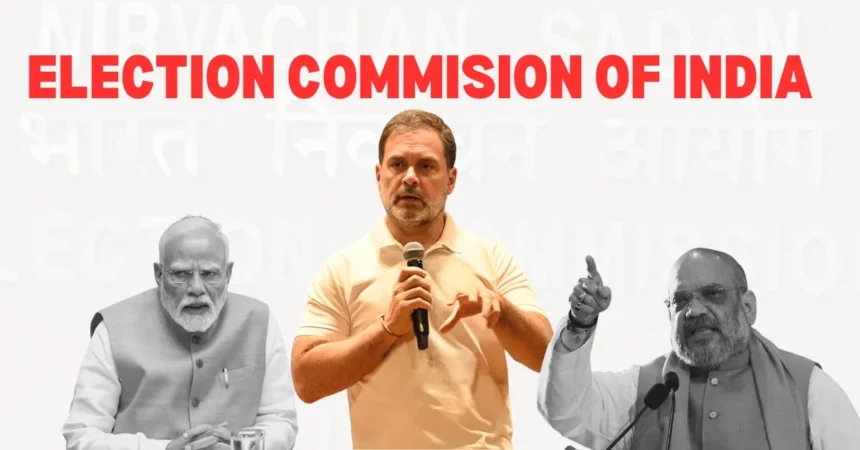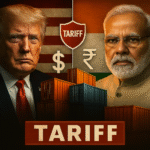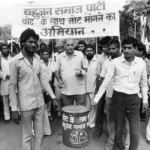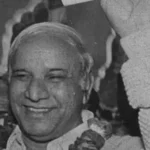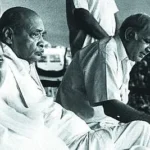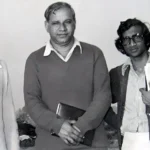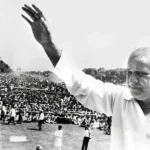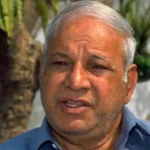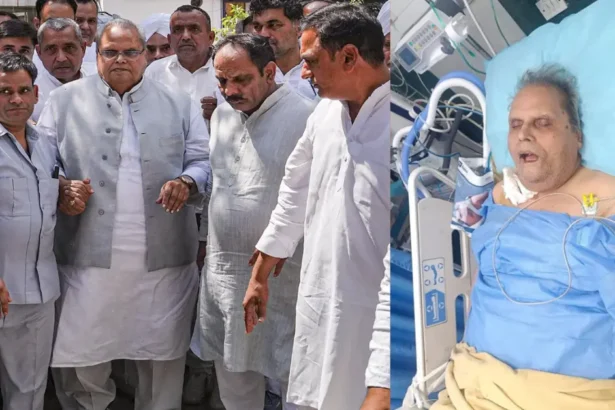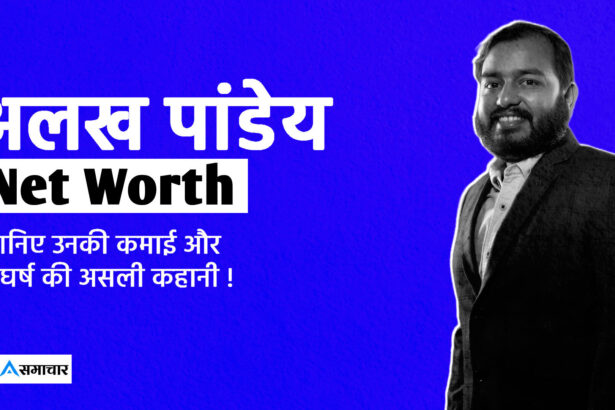Opposition Leader Presents ‘Atom Bomb’ Evidence Against Poll Body
In a dramatic confrontation with India’s electoral system, Congress leader and Leader of Opposition Rahul Gandhi on August 7, 2025, unveiled what he termed as “100% proof” of systematic vote theft, accusing the Election Commission of India (ECI) of colluding with the Bharatiya Janata Party (BJP) to manipulate elections across the country. The allegations, backed by six months of intensive research, have triggered the most serious institutional crisis between the opposition and the poll body in recent memory.
- Opposition Leader Presents ‘Atom Bomb’ Evidence Against Poll Body
- The Maharashtra Trigger: From Victory to Suspicion
- The Mahadevapura Investigation: Forensic Analysis of Alleged Fraud
- Duplicate Voters: The Multi-State Voting Scandal
- Fake and Invalid Addresses: The House Number Zero Mystery
- Bulk Voters: Impossible Living Arrangements
- Invalid Photos: The Identity Crisis
- Form 6 Misuse: The Elderly “New Voters”
- Election Commission’s Counterattack: Legal Challenge and Denial
- BJP’s Furious Response: Accusations of Defaming Democracy
- The Broader Pattern: Anti-Incumbency and Electoral Choreography
- The Anti-Incumbency Anomaly
- Multi-Phase Elections and Strategic Timing
- The Data Access Problem
- The Special Intensive Revision Connection
- Technology and Transparency Debate
- International and Institutional Implications
- The Path Forward: Legal and Political Ramifications
- Legal Proceedings
- Political Mobilization
- Institutional Reform
- Democracy at a Crossroads
Gandhi’s explosive press conference at the Congress headquarters presented detailed evidence of alleged electoral fraud in Karnataka’s Mahadevapura Assembly constituency, where he claimed over 1,00,250 votes were stolen through five distinct methods of manipulation. The timing and substance of these allegations have sent shockwaves through India’s political establishment and raised fundamental questions about the integrity of the world’s largest democratic exercise.
The Maharashtra Trigger: From Victory to Suspicion
The current controversy has its roots in the dramatic reversal of fortunes witnessed in Maharashtra’s assembly elections in November 2024. The INDIA bloc, which had performed impressively in the May 2024 Lok Sabha elections by winning 30 out of 48 seats in Maharashtra, suffered a crushing defeat just five months later, managing fewer than 50 seats in the state assembly.
This dramatic shift formed the foundation of Gandhi’s broader allegations against the electoral system. “Maharashtra results confirmed our suspicion that the assembly election was stolen,” Gandhi declared, pointing to what he described as an inexplicable pattern where the BJP appears immune to anti-incumbency.
The Congress leader highlighted several disturbing trends that fueled suspicions:
- Unprecedented Voter Addition: Gandhi alleged that 1 crore new voters were added to Maharashtra’s electoral rolls between the Lok Sabha and assembly elections-more than had been added in the previous five years combined. The Election Commission countered that 40.81 lakh new electors were added, with 26.47 lakh being young voters aged 18-29.
- Mysterious Voting Surges: The opposition raised questions about a sudden spike in voter turnout after 5:30 PM on election day, with turnout figures allegedly jumping from 58.22% at 5 PM to 66.05% by the next morning-an increase of nearly 76 lakh votes.
- Pattern Recognition: Gandhi noted that the BJP consistently defies anti-incumbency trends that affect all other parties in democratic systems worldwide, citing similar patterns in Haryana, Madhya Pradesh, and Maharashtra.
The Mahadevapura Investigation: Forensic Analysis of Alleged Fraud
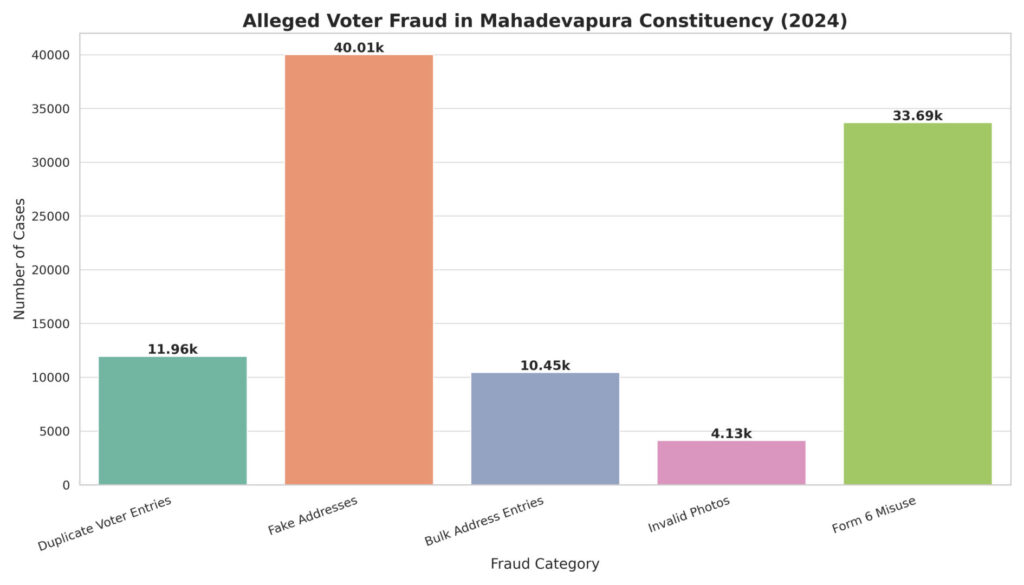
The centerpiece of Gandhi’s allegations focuses on the Mahadevapura Assembly constituency in Bangalore Central, where Congress conducted what they describe as a forensic analysis of voter data from the 2024 Lok Sabha elections. The constituency became a focal point because while Congress won six of the seven assembly segments within Bangalore Central, they lost Mahadevapura by over 1,14,000 votes.
Breakdown of alleged voter fraud categories in Mahadevapura constituency as presented by Rahul Gandhi, showing fake/invalid addresses as the largest category with over 40,000 cases
The investigation, conducted by a team of 30-40 people over six months, allegedly uncovered five categories of systematic fraud:
Duplicate Voters: The Multi-State Voting Scandal
Gandhi presented evidence of 11,965 duplicate voter entries, showcasing individuals like Gurkirat Singh Dang who appeared four times across different polling booths within the constituency. More alarmingly, voters like Aditya Shrivastava allegedly had registrations across multiple states—Karnataka, Maharashtra, and Uttar Pradesh—enabling potential multi-state voting.
Fake and Invalid Addresses: The House Number Zero Mystery
The most significant category involved 40,009 voters with allegedly fake or invalid addresses. Gandhi displayed voter rolls showing:
- House numbers listed as “0” (zero)
- Father’s names recorded as random character strings like “ILSDFHFHUG” and “DFOIGOIDF”.
- Non-existent locations such as “RHA Colony” with 240 registered voters.
Bulk Voters: Impossible Living Arrangements
The investigation identified 10,452 cases of bulk voter registrations at single addresses, including instances where 80 people were allegedly registered to live in a single room, and 46 voters listed at another single-room address. When Congress teams visited these locations, they reportedly found only one family actually residing there.
Invalid Photos: The Identity Crisis
4,132 voters allegedly had invalid photographs-either blurred, microscopic in size, or completely missing from their voter registration documents, making identification impossible.
Form 6 Misuse: The Elderly “New Voters”
The most sophisticated alleged fraud involved the misuse of Form 6, meant for first-time voters aged 18-23. Gandhi claimed 33,692 cases where elderly individuals, including septuagenarians and octogenarians, were registered as “new voters” using this form.
Election Commission’s Counterattack: Legal Challenge and Denial
The Election Commission’s response to Gandhi’s allegations was swift and pointed, with Karnataka’s Chief Electoral Officer demanding that Gandhi submit a sworn declaration under Rule 20(3)(b) of the Registration of Electors Rules, 1960. The poll body attached a declaration form warning that submitting false evidence is punishable under Section 227 of the Bharatiya Nyaya Sanhita and making false declarations about electoral rolls is punishable under Section 31 of the Representation of the People Act, 1950.
“If Rahul Gandhi does not believe in what he is saying, then he should stop arriving at absurd conclusions and mislead the citizens,” the Election Commission stated, challenging the Congress leader to put his allegations under legal oath.
Sources within the Election Commission dismissed Gandhi’s claims as “baseless allegations” and suggested that he should “either sign and submit evidence, or stop misleading the people of India”.
The poll body emphasized that electoral rolls are prepared transparently and that election results can only be questioned through election petitions before High Courts.
BJP’s Furious Response: Accusations of Defaming Democracy
The BJP launched a scathing counterattack, with senior leaders accusing Gandhi of “insulting the people of India” by calling the party’s election victories fraudulent. Ravi Shankar Prasad, former Union Minister and BJP MP, condemned Gandhi’s remarks as “irresponsible and shameless,” arguing that the Congress leader was attacking the Election Commission out of “frustration and anger” over electoral defeats.
“Narendra Modiji has been winning elections since 2015, and you are calling that also a fraud. You are insulting the people of the country who voted for Modiji,” Prasad declared.
Maharashtra Chief Minister Devendra Fadnavis dismissed Gandhi’s claims with characteristic bluntness: “Either his brain has been stolen or the chip in his brain is missing. That is why he is making such statements often”.
Education Minister Dharmendra Pradhan escalated the rhetoric, suggesting a “big conspiracy against Indian democracy” behind Gandhi’s allegations and referencing the “dark chapter of Emergency” in Congress’s history.
The Broader Pattern: Anti-Incumbency and Electoral Choreography
Gandhi’s allegations extend beyond individual constituency fraud to encompass what he describes as a systematic pattern of “choreographed elections” designed to favor the ruling party. He pointed to several concerning trends:
The Anti-Incumbency Anomaly
“Anti-incumbency hits every single party in every single democracy. But for some reason, the BJP is the only party that does not suffer from anti-incumbency,” Gandhi observed, citing the party’s unexpected victories in Haryana, Madhya Pradesh, and Maharashtra despite widespread predictions of defeat.
The 2024 Haryana Assembly elections exemplified this pattern, where the BJP secured 48 out of 90 seats despite exit polls predicting a Congress landslide. The Congress, which won only 37 seats, raised “serious issues about the integrity of the counting process and functioning of EVMs”.
Multi-Phase Elections and Strategic Timing
Gandhi questioned the shift from India’s historical practice of conducting nationwide elections in a single day to the current system of multi-phase polling spanning weeks or months. “There was a time in India when elections were held in one day. Now voting stretches for a month, and dates keep shifting,” he noted, describing this as evidence of electoral choreography.
The Data Access Problem
A critical component of Gandhi’s allegations involves the Election Commission’s alleged refusal to provide machine-readable voter data to political parties. Gandhi argued that while it took his team six months to analyze paper records from just one constituency, electronic data would enable analysis “within 30 seconds”. The EC’s insistence on providing only paper formats, he claimed, is designed to prevent scrutiny.
The Special Intensive Revision Connection
Gandhi’s allegations have inadvertently highlighted the Election Commission’s ongoing Special Intensive Revision (SIR) of electoral rolls, beginning with Bihar. The SIR, described as the first such nationwide exercise in over 20 years, involves door-to-door verification to clean up voter lists affected by urbanization, migration, and duplication.
Ironically, sources within the Election Commission noted that Gandhi’s complaints about duplicate and fraudulent voters actually support the need for SIR exercises. “He is supporting our exercise in Bihar by talking about fake voters,” an EC source observed.
The Supreme Court has allowed the Bihar SIR to continue while suggesting acceptance of Aadhaar, voter ID, and ration cards as valid documents for voter enumeration. However, the exercise has faced opposition concerns about potential voter disenfranchisement.
Technology and Transparency Debate
The controversy has reignited broader debates about Electronic Voting Machine (EVM) reliability and electoral transparency. Gandhi and other opposition leaders have repeatedly questioned EVM integrity, with some calling for a return to paper ballots.
The Supreme Court recently dismissed petitions seeking 100% VVPAT verification or return to paper ballots, emphasizing that “EVMs are often questioned only in the wake of electoral losses”. However, opposition parties continue to raise concerns about EVM battery levels, vote counting procedures, and the lack of comprehensive auditing mechanisms.
International and Institutional Implications
Gandhi’s allegations have attracted international attention, raising questions about the credibility of Indian democracy on the global stage. “The judiciary needs to get involved in this because the democracy that we love so much does not exist,” Gandhi declared.
Legal experts suggest that while Gandhi’s allegations are serious, they must be substantiated through proper legal channels. Supreme Court lawyer Mehmood Pracha noted that “Courts delay election petitions deliberately. People must hit the streets”.
The controversy occurs against the backdrop of broader concerns about democratic institutions in India, including questions about the independence of election commissioners, the role of money in politics, and the balance between security and transparency in electoral processes.
The Path Forward: Legal and Political Ramifications
The standoff between Gandhi and the Election Commission presents several potential outcomes:
Legal Proceedings
If Gandhi submits the sworn declaration demanded by the Election Commission with specific voter names and details, it could trigger formal investigations into the alleged irregularities. However, failing to do so could undermine the credibility of his allegations.
The Congress has indicated it may file election petitions in multiple states, including 90+ seats in Maharashtra and 20+ seats in Haryana. Such legal challenges could provide a formal mechanism for examining the evidence presented by Gandhi.
Political Mobilization
Gandhi has hinted at “decisive action” following consultations with INDIA bloc partners. The opposition alliance could launch mass protests similar to those threatened during the farmers’ agitation, potentially paralyzing governance if the allegations gain broader traction.
Institutional Reform
The controversy may catalyze demands for electoral reforms, including greater transparency in voter list preparation, mandatory provision of machine-readable electoral data to political parties, and enhanced audit mechanisms for election results.
Democracy at a Crossroads
Rahul Gandhi’s explosive allegations against the Election Commission represent more than a partisan political dispute-they strike at the heart of India’s democratic legitimacy. Whether viewed as the desperate accusations of a losing party or as credible evidence of systematic electoral manipulation, these claims demand serious examination.
The resolution of this controversy will significantly impact India’s democratic trajectory. If Gandhi’s allegations are substantiated, they could lead to fundamental reforms in electoral administration and oversight. If dismissed, they risk further eroding opposition confidence in democratic institutions and processes.
The standoff between the Leader of the Opposition and the Election Commission has created an unprecedented constitutional crisis that tests the resilience of Indian democracy. The coming weeks and months will determine whether this controversy leads to greater electoral transparency and accountability or further polarizes an already divided political landscape.
The stakes extend beyond partisan politics to encompass the fundamental question of whether India’s electoral system can maintain the trust and confidence essential for democratic governance. As the world watches, India faces a defining moment in its democratic journey-one that will shape the credibility and legitimacy of its electoral processes for generations to come.
The “vote chori” allegations have opened a Pandora’s box that cannot be easily closed. Whether they lead to meaningful reform or deeper institutional crisis will depend on the response of India’s democratic institutions, political parties, and ultimately, its citizens. The outcome will determine not just the future of electoral politics in India, but the very foundation upon which the world’s largest democracy rests.



